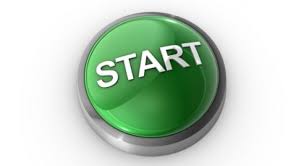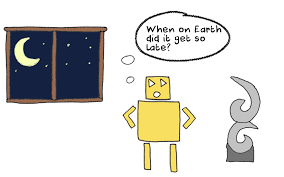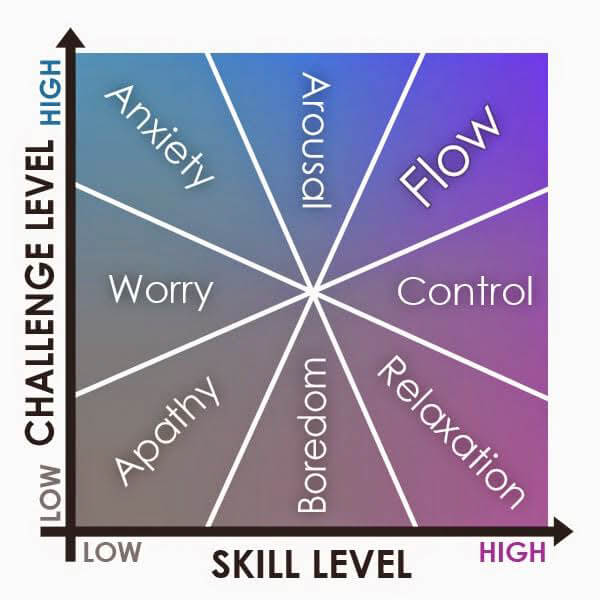“What man actually needs is not a tensionless state but rather the striving and struggling for some goal worthy of him. What he needs is not the discharge of tension at any cost, but the call of a potential meaning waiting to be fulfilled by him.” Welcome to week 3 in our Work From Home series. We are dedicating this week to applying the principle of "More with Less" in our lives. We are constantly on the hunt for ways to do more with our time, money, and resources. But sometimes it easy to get side tracked and miss out on opportunities to try new things, and meet our goals. Especially when they are inherently TOUGH. So, in that light I would like to touch on a couple of topics about positive psychology. Be sure to check out all of our other resources covered this week on our Health at Home page! Zeigarnik Effect, and the power of GETTING STARTEDHave you ever found yourself pre-occupied with intrusive thoughts about that home/work/school project, training program, a book or series, or game, that you have started? That preoccupation with unfinished work is the Zeigarnik Effect (ZE) on full display! More specifically, it is the tendency to remember incomplete or interrupted tasks more easily than tasks that have been completed. The effect was first observed by Russian psychologist Bluma Zeigarnik in the early 1900's, who noticed that waiters in a café could recall the orders they had not yet delivered better than those they had. She then went on to research this psychological effect, which is summarized in her work "On Finished and Unfinished Work". In these experiments, she found that a group of participants recalled interrupted tasks 90% better than the tasks they completed, and a second group of participants recalled interrupted tasks twice as well as completed tasks. Children too! We are exploited constantly with this phenomena, with catchy news headlines, binge-worthy Netflix series, interrelated quests in gaming, click-bate, etc. But in what ways can we harness the ZE for our personal use, and what can we learn to avoid?
The ZE, though well supported, does not do a great job taking into account personal motivation, or the perception of how difficult a task is. This is a perfect opportunity to introduce the other aspect of positive psychology: Flow theory, and happinessRefer to Victor Frankl's quote at the top of this post. It suggests that we gain happiness when we are working towards a long-term, meaningful goal, to where time seems to stand still! That is where the psychological term known as "flow" comes in. Psychological Flow captures the positive mental state of being completely absorbed, focused, and involved in your activities at a certain point in time, as well as deriving enjoyment from being engaged in that activity. (sourced here) It is known, simply, as being "in the zone", doing things that are self-rewarding. You know you have experienced this when you are performing a task, and you all of a sudden look at the clock and realize you've lost total track of time. It is often doing something you enjoy, and that gives you happiness. Mihaly Csikszentmihalyi was credited with popularizing the term flow. This is an excerpt from Wired magazine article "Go with The Flow": "Being completely involved in an activity for its own sake. The ego falls away. Time flies. Every action, movement, and thought follows inevitably from the previous one, like playing jazz. Your whole being is involved, and you're using your skills to the utmost". In other words, we should fill our lives with as much flow as possible. Here are the key factors to triggering flow (according to Csikszentmihalyi 's studies)
Here is a chart detailing the ideal conditions for entering the flow state, from Csikszentmihalyi’s (1998) book Finding Flow . Key lessons learned from Flow Theory:
For more information on this, I encourage you to watch Mihaly Csikszentmihalyi's Ted Talk Flow, the secret to happiness. We can employ these two areas of positive psychology to engage more meaning into our lives. GET STARTED working FLOW into your life. DO MORE with LESS! Until next time!
0 Comments
Leave a Reply. |
Broad Scope Narrow Focus BlogWelcome to the Broad Scope Narrow Focus Blog! I hope you find a lot of useful and applicable information as we explore the broad world of Wellness together. Check in often, as there will be new posts weekly! Enjoy Archives
September 2021
Categories |
Services |
Hours & Contact InformationHours of Operation: The Facility is staffed Tuesday - Thursday 7a-5p
*Facility is accessible 24 hrs / 7 days a week e . [email protected] p . (616) 787 - 7710 |




 RSS Feed
RSS Feed